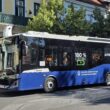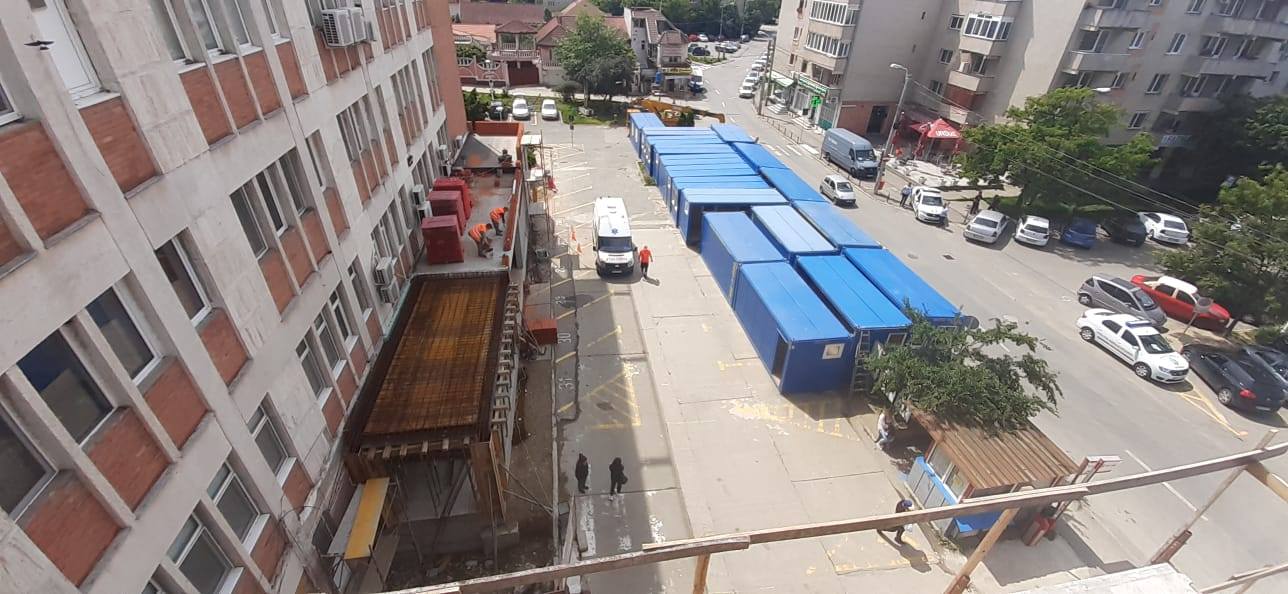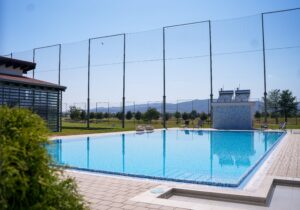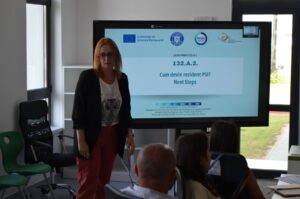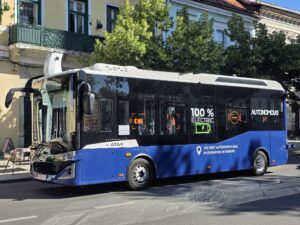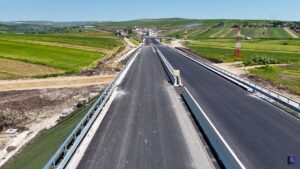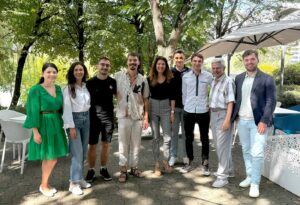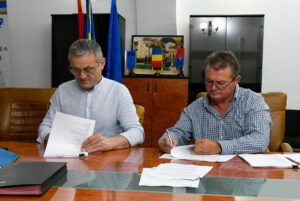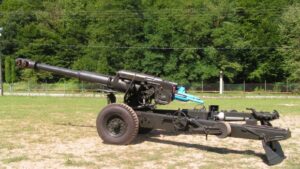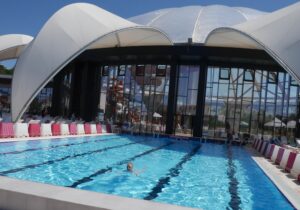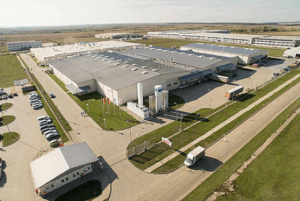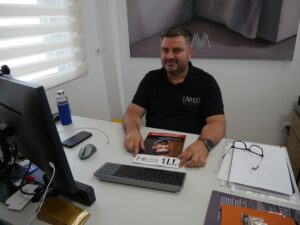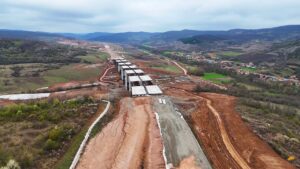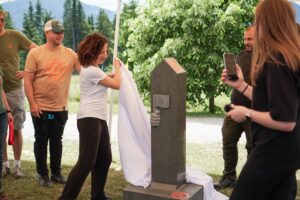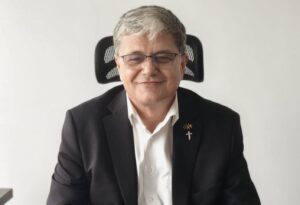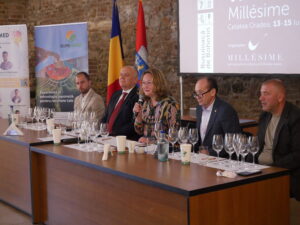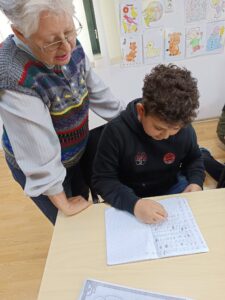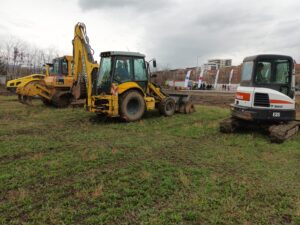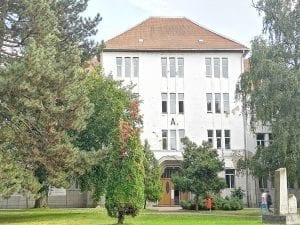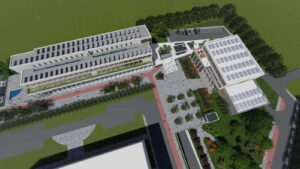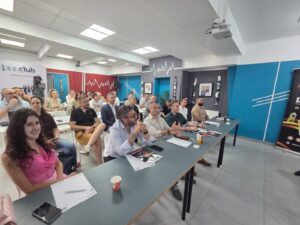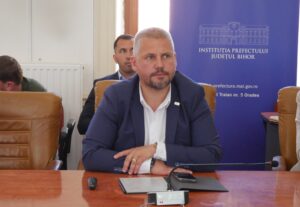The County of Cluj covers 6,674 sq. km and is situated in the heart of the historical province of Transylvania, in central-western Romania, in the contact area of three major geographically units: Apuseni Mountains, Somesan Plateau and Transylvania Plain.
The County population is of approximately 730,000 inhabitants, out of which 65% are living in the urban area. One of Cluj County’s main characteristics is the variety of ethnical groups that are cohabiting with Romanians, such as Hungarians, Gypsies, Germans and Armenians. Thus, along with the majority ethnic group – Romanians, representatives of Hungarian, German, Armenian and others are living in harmony and altogether are contributing with many personalities and values to the humanity and to the world heritage.
Regarding the cultural activity, Cluj County is nationally recognized as one of the most attractive counties in this domain. Having a valuable patrimony, an old tradition and well-known institutions, Cluj has nowadays a complex cultural and academic life.
Cluj County is one of the most balanced and developed counties in Romania, with an economy that is based largely on services and industry, being the second largest banking center in the country. TETAROM, the three industrial parks – owned by the Cluj County Council – contribute to the economic development of the county; thanks to the facilities offered to investors, as well as to the willingness of the county authorities and their interest in the expansion and modernization of the local infrastructure, especially the air transport sector, road and rail, it managed to attract a large number of international companies. Thus, companies like Nokia, Emerson, DeLonghi, Bosch, to name a few, have chosen these industrial parks, primarily because of the advantages that Cluj County offers in areas like exemptions from land and buildings (according to the law of industrial parks), state aid, investment incentives, lower price of land transfer in the industrial parks managed by the Cluj County Council etc.
Also, in order to explain Cluj County attractiveness in terms of investments, the high qualified human resource needs to be mentioned, mainly as a result of graduating of one of the 12 Cluj universities.
At the same time, what truly defines Cluj County is its academic environment. Cluj-Napoca is the oldest university in the country and the second largest in Romania, with as many as 12 public and private universities where over 100,000 students complete their studies.
Among the existing universities in Cluj-Napoca, a city with a variety of appreciated academic offers, „Babes-Bolyai” University is the most prestigious one, with beginnings dating back to 1581. Currently, „Babes-Bolyai” is the largest university in the country and at the same time one of the largest universities in South-East Europe, offering to its 42,000 students not less than 105 specializations. But what really makes this university special is its multicultural European recognition as a model of good practice. What is relevant in this regard is that 19 out of its 21 faculties offer study programs in Romanian, 17 in Hungarian, 9 in German and 2 in English.
In order to create optimal premises for a rapid development of the county, the Cluj County Council initiated a series of infrastructure projects meant to contribute mainly to the expansion and modernization of transport infrastructure in the region. Currently, Cluj County Council runs a number of projects which aim at expanding and renovating Cluj-Napoca International Airport, this authentic Air Gateway of Transylvania whereby over 2.8 million people, including tourists and investors, annually visit Cluj County and Transylvania region.
These projects, meant to encourage the development of aerial transportation of passengers and merchandise to and from Cluj County, involve the construction of a new 3,500 m long landing/take-off runway which will enable the landing of larger aircraft types, including jumbo jet (the first stage, of 2,100 m, was finished at the end of 2013), the construction of a cargo terminal that would facilitate the transportation of various types of goods for the investors of Cluj, construction of a new control tower, etc.
Also, in order to facilitate the access for foreign investors and tourists in every corner of the county, Cluj County Council is currently running a major project which aims at modernizing 741 km of county roads.
2019, a budget for development and for investments
In 2019, Cluj County’s budget allocations for development, roads and sanitary infrastructure are almost double compared to 2018.
Recognizing the importance of investments in stimulating and accelerating the economic growth, Cluj County Council approved a record budget for 2019, with significant allocations for investments, development and infrastructure works. Thus, the total budget is 1,481,157,080 lei, a 7.5% increase on last year.
Within the budget, the amount set aside for functioning is down 25% compared to the previous year, so the funds saved are destined for development. Regarding the budget for investments and co-financing European projects, it has a total of 615,979,860 lei. Compared to 2018 Cluj County’s budget for development has recorded a spectacular increase of about 90% this year!
Speaking of the public investments chapter, the largest amounts allocated by the County Council are intended for the transport sector, almost 336,912,220 lei were allocated for the modernization of road infrastructure, meaning almost a 97% increase from last year! From this amount, 246,647,220 lei will provide the co-financing of European projects won by the County Council for roads, the rest of the money being intended for routine maintenance work – 61 million lei, and modernization work from scratch for county roads – 27 million lei.

Another priority sector, supported financially very strong, is the improvement of medical services offered to patients. With regard to the budget for the health sector, Cluj County Council has marked an absolute record in 2019. To finance almost 14 hospitals in Cluj, the administrative forum allocated in 2019 an amount of 28,119,440 lei. This financial allocation will be supplemented by further corrections. Thus, the amount allocated to health sector in 2019 is the largest in the history of the County Council, over 70% higher than that allocated in 2018 and almost 414% higher than in 2017!
As for the money allocated for co-financing European projects won by the County Council in the field of road and health infrastructure rehabilitation, the 2019 budget is an absolute record, meaning a total of 496,781,700 lei, an 89,95% increase!

The key to raising new investments and boost tourism development in Cluj County
At least 47 county roads will be rehabilitated in 2019.
Recognizing the importance that a competitive transport network has in terms of economic development, Cluj County Council decided that at least 47 county roads in Cluj should be subject to complex work of modernization and rehabilitation in 2019.
Regarding the maintenance work, Cluj County Council has allocated 61,000,000 lei for repairing 41 county roads. However, in terms of rehabilitation and modernization, county council has allocated 27 million lei. The amount will certainly be supplemented during the year.
At the same time, a significant part of the Transport chapter from Cluj County’s budget, meaning 246 million lei will be used to finance European projects aimed for the rehabilitation of road infrastructure.
Thus, almost 138,840,000 lei will be used to continue working on road projects: Bistrița road and Apuseni road. Over 107 million lei will be used to upgrade and rehabilitate a total of 20 sectors of county roads. The sectors are part of the European project „Regional Northern Transylvania route”, financed by POR 2014-2020, and are grouped as nine county routes.
Health investments, an absolute priority
One of the main priorities in the actions of the County Council of Cluj, just as the budget allocation reveals, is represented by the health system development. Even if Cluj-Napoca is already known as a centre of excellence for the Romanian medical life, the government of the administrative forum in the county has stated that health needs special attention because of its great importance. In this context, along with the record-breaking allocations, in order to rehabilitate and modernize the buildings where all the medical activity takes place and to purchase ultramodern equipment, the County Council of Cluj has started off a project with vital relevance in the development of the medical sector in Cluj and all over Transylvania: building from zero a Monobloc Children’s Hospital in Cluj-Napoca.
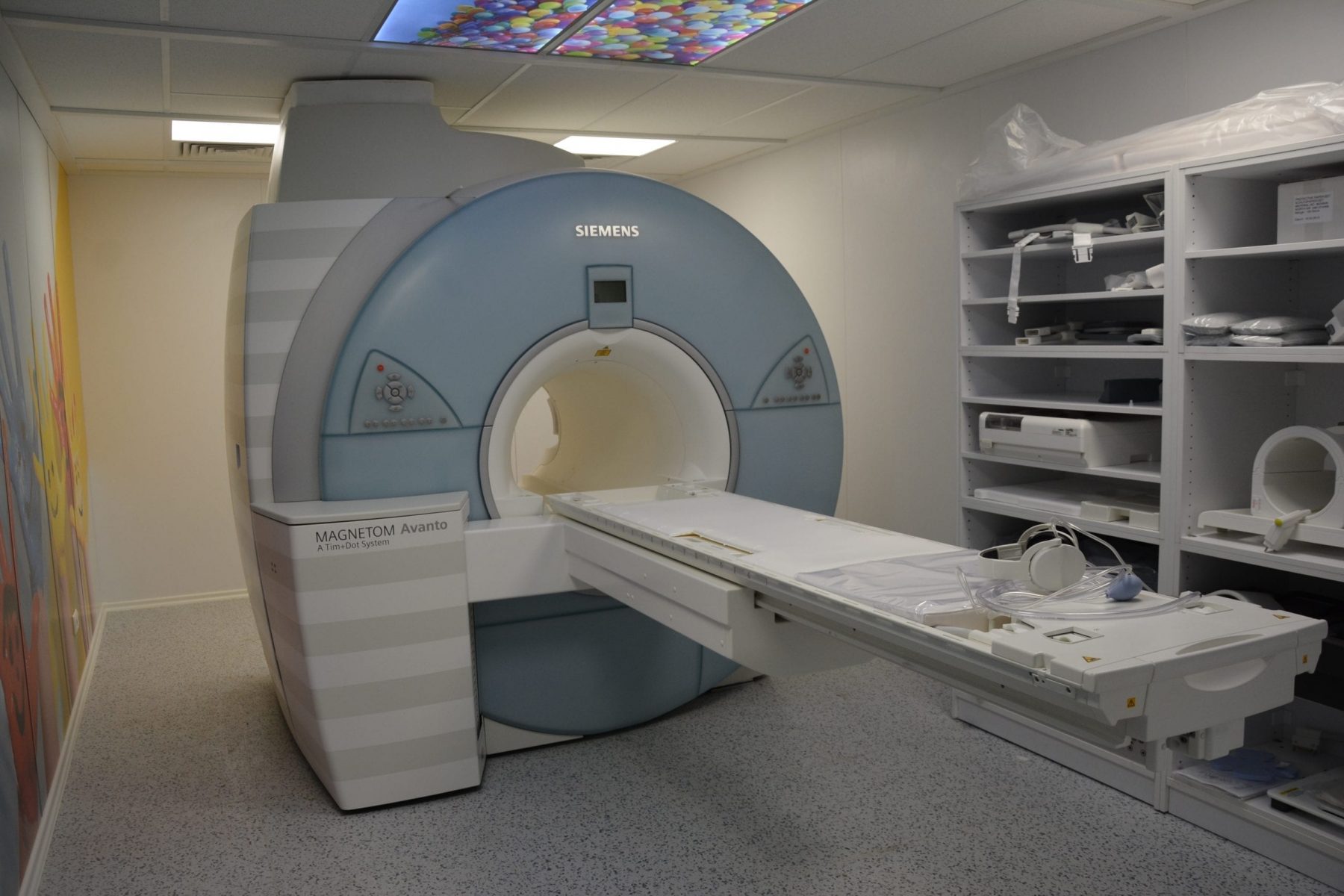
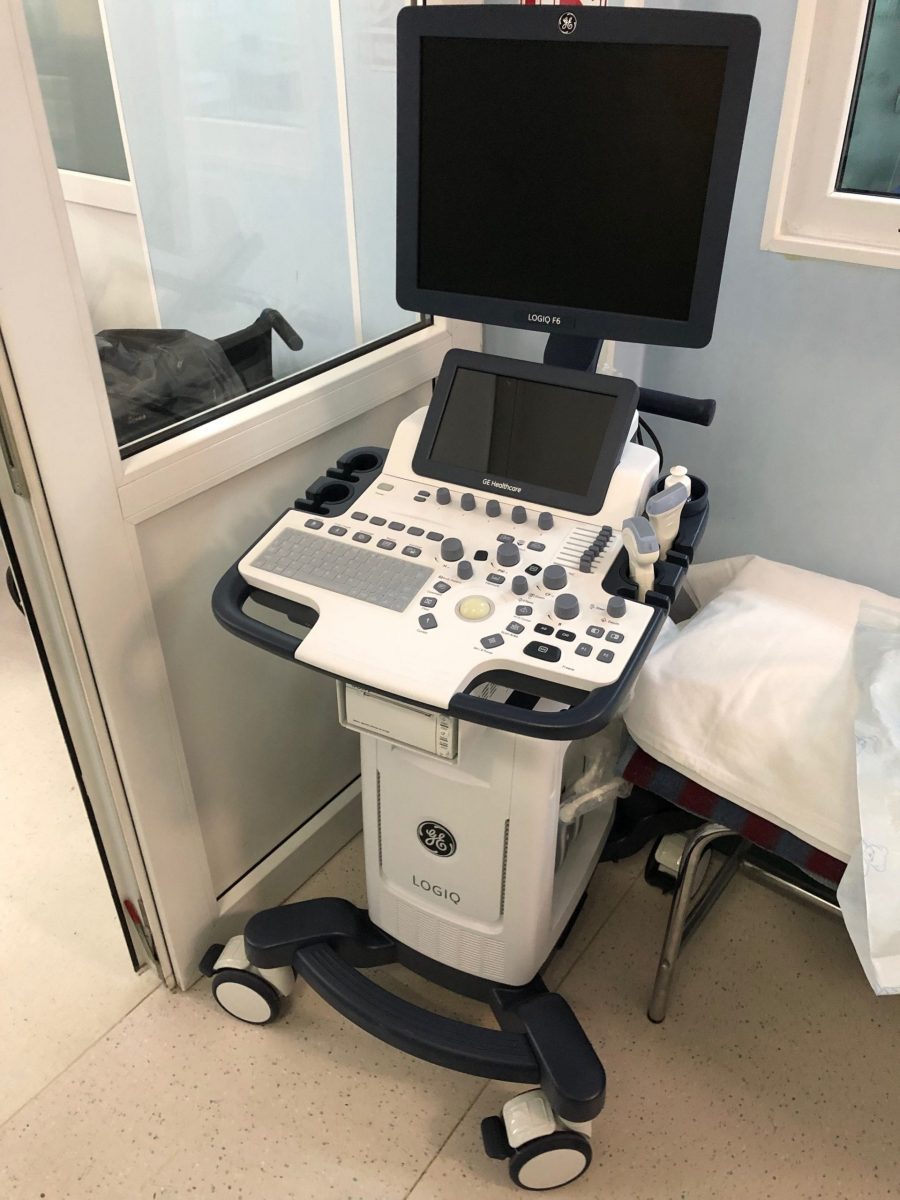
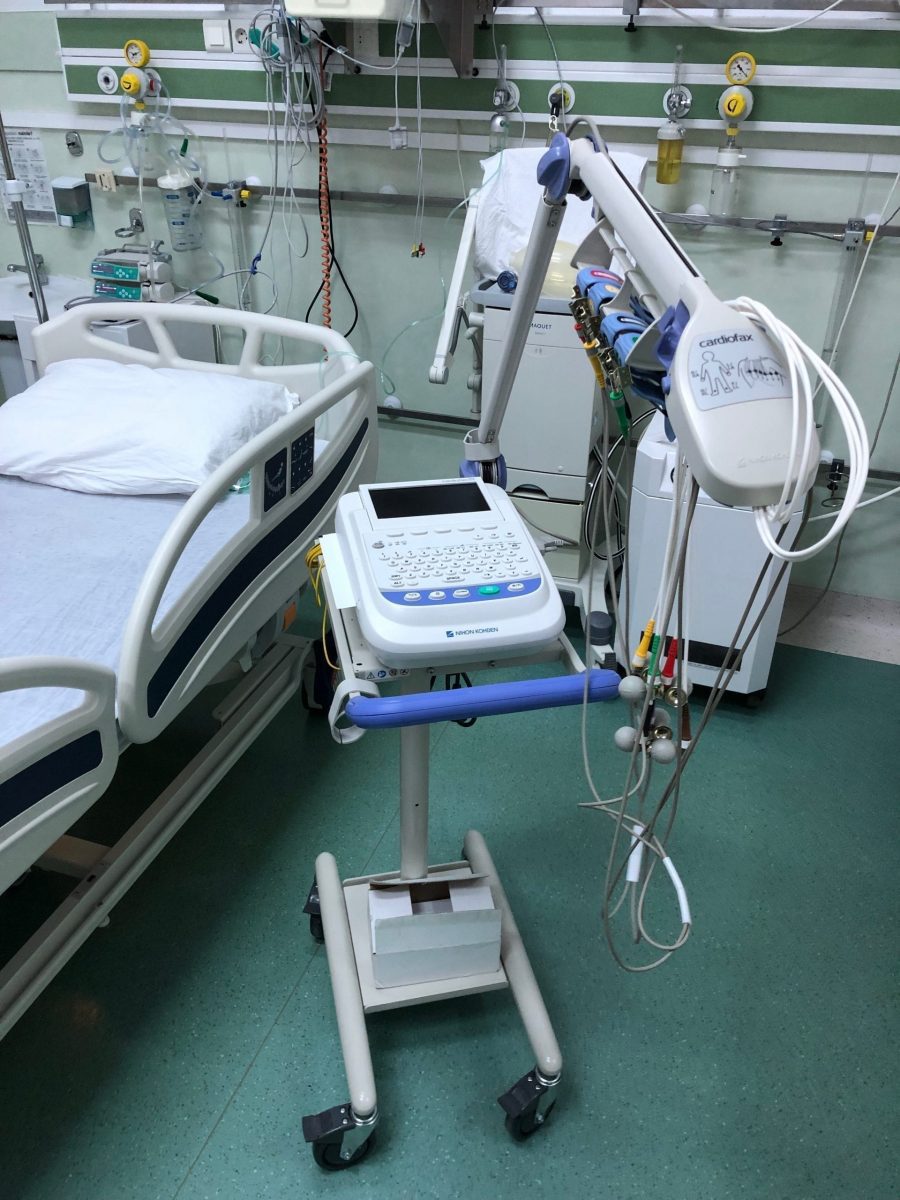
2019 – Year with record allocations
There are 5 hospitals subordinated to Cluj County Council, but the CJCC allocates funds and writes European projects for other hospitals in the county subordinated to other institutions.
In 2017, the budget allocation for hospitals, both in the CJCC and in the Ministry of Health subordination, was 4,266,000 lei, and the year 2018 ended with a total budget allocation of 15,968,870 lei.
According to the project, in 2019 we allocate from our own budget only not less than 27,067,000 lei for the financing of 14 hospitals in Cluj, amount to which will be added additional allocations to be granted through the subsequent budgetary corrections.
Thus, this year’s health-related sum is the largest in the history of Cluj County Council!
Regarding the destination of these sums, the vast majority will be directed towards the endowment of the state-of-the-art high-performance medical hospitals that are essential to the saving of life and health of many Cluj people.
At the same time and in addition to that, substantial sums will also be allocated for the financing of the rehabilitation works of the buildings of the medical units, respectively for the repairs to the salons, the laboratories, the cabinets and the other spaces necessary for the development of a quality medical act.
To this, we also add 13 projects on European funds, deposited and won, for 2017 – 2019, totalling 164,977,928 lei. These European-funded projects aim at equipping the Emergency Care Unit within the County Children’s Hospital and Emergency County Emergency Hospital, financing the rehabilitation and endowment works of the Rehabilitation, Infectious Diseases and Pneumoftiziology Hospitals, sanitary units under the authority County Council.
In total, only in the year 2019 there will be implemented in the county of Cluj European projects aimed at improving the medical act and increasing the access of patients to medical services, totalling more than 75 million Euro, projects to which the County Council is either the titleholder or the partner.
The future Monobloc Children’s Hospital
The president of the County Council of Cluj, Alin Tișe, has announced at the end of February 2018 that they have a location to build the future Monobloc Children’s Hospital, a medical unit with a regional profile, achieved in partnership with the City Hall of Cluj-Napoca.
So, after consulting the experts and the ones who are responsible in that area, they ended up to the conclusion that the most suited location to build this Hospital is on a field from the former colony of Borhanci. Situated between Borhanci Street and Sopor Street, having access to the two bypasses of the Municipality, the field will be provided free of charge by the City Hall of Cluj-Napoca, giving all the support in this project.
The president of the County Council of Cluj, Alin Tișe: ”The timetable for this project is very organised and we hope to obtain by the end of the year even the planning permission. After going over the auction procedure, we plan that The Monobloc Children’s Hospital will be built in 2 years maximum after signing the implement contract, the same way we did with the edification of the stadium. Obviously, the Hospital will have the most modern medical equipment, in line with the most demanding European standards in this field”.
The building will stand on the 7 acres provided by The City Hall, will have all the 14 structures, that is 11 medical sections, 2 compartments, the Emergency Room, the Dialysis station from the current Children’s Hospital, structures that function today in different locations in Cluj-Napoca with an approximately 4 km distance between them.
The new medical unit will have a regional profile and a capacity of 700 beds, with 200 more beds than the ones in the present. The building will have a ground space between 7,000 and 10,000 metres. The costs for this investment will be entirely borne by the County Council, through multiannual budget.
The County Children’s Hospital is currently serving the entire region of Transylvania, around 60% of the total patients coming from the nearby counties.
Advantages generated by building the Monobloc Children’s Hospital
The need to put a Monobloc Children’s Hospital into service is determined mostly by the fact that the Children’s Hospital is presently operating in no less than 14 buildings from 9 different locations.
The buildings are old, in a poor condition and most of them are claimed, making it impossible to repair and modernize by the County Council.
The main advantages generated by the existence of a Monobloc Hospital consist in the economy of time and money, in reducing the discomfort for the little patients and their parents and also in reducing the operating costs. The utilities will cost less, considering the fact that there will be just one building, there will be just one laboratory, one food unit, one pharmacy, one ambulatory, etc. There will also be a greater control and an enhanced surveillance over the departments, an easier collaboration between the departments and a superior functionality. Apart from this, there will be operating rooms suitably equipped that will contribute to lowering the number of nosocomial infections and there will be a blood transfusion unit, according to the law, merging the two transfusion points from the hospital.
Cluj County Council, first place in accesing European funds

Accessing non-refundable European funds is one of Cluj County Council’s main strategic directions, as well as a continuous challenge. The European funds accessed in the last couple of years prove that the county authorities have found and implemented an optimal solution in this matter.
European projects of over 1.1 billion lei under implementation
Cluj County Council is currently the authority with the highest value of non-refundable European projects – 1,110,175,802.80 lei, almost 926,000,000 lei being European funds!
Specifically, in April 2019, Cluj County Council was managing 25 European projects, financed almost 75% by the 2014-2020 Regional operational programme, the remaining projects being funded by the Large Infrastructure – 20%, Environment – 10% and Administrative Capacity – 0,4% programmes. The value of all these projects under implementation is most definitely the largest sum of non-refundable funds in the history of the county!
The aims of the projects submitted for European financing – county road rehabilitation, medical and special education, waste management, historical building restoration or the informatisation of the activity conducted by Cluj County Council – demonstrates that the administrative leadership of the county made a solid effort to acquire non-reimbursable funds in every European programme where the eligibility condition was being met! Winning a record number of European projects also meant relieving the county budget from a massive financial burden, again proving the expertise of Cluj County Council in this area.
We would like to mention that this list also includes projects deemed „retrospective”, meaning investments already financed and brought to fruition by Cluj County Council from its own funds and reimbursed with the help of the specialized financing mechanism of the 2014-2020 Regional Operational Programme. Thusly, in 2019 alone, a number of 13 medical and transport infrastructure projects, valued at 334,860,481.24 lei were settled. The contribution of Cluj County Council, without its project partners, amounts to 272,583,022.61 lei.
11 new non-refundable projects, under contracting
There are also 11 non-refundable financing projects submitted and in different stages of assessment/financing, with a total value of 122,681,606.38 lei. Three projects were contracted in April-May 2019 and aim to renovate special educational units under the authority of the County Council. The remaining eight projects mostly intend to redevelop the outpatient units of the five major hospitals of Cluj County. The financing applications are under administrative and technical-financial evaluation, with a strong chance they may be financed by the end of 2019.
Last but not least, to emphasize the insatiable appetite of Cluj County Council for European funds, at this moment the council provides sustainability for 11 more projects, valued at 170,924,316.5 lei. Their implementation and finalization period is 2019-2023, despite being awarded in previous periods.
Grand projects, over 355 million Euro
One of the largest European financed projects currently under way in Cluj and even at national level is the one implemented by Someș Water Company, a company with Cluj County Council as its majority shareholder. Thusly, due to the sustained efforts over the last few years to prepare for the fifth major water infrastructure extension and rehabilitation program, at the end of 2018, a new nonrefundable financing was obtained with the help of the 2014-2020 Large Infrastructure Operational Programme: “Regional project for water and wastewater infrastructure development in Cluj and Sălaj Counties, 2014-2020”. Valued at over 355,600,000 Euro, 85% being EUs contribution from the Cohesion Fund, this new investment will improve the water infrastructure of 174 localities from Cluj and Sălaj, by extending and developing drinkable water services, under safety and health protection conditions, in settlements with more than 50 people. Moreover, it insures the collection and cleaning of waste water from settlements with more than 2,000 inhabitants. After its implementation, that is the end of 2023, Cluj will become the first county in the country to be almost fully connected to the water grid. According to the project, the percentage of people connected to a centralized water network will reach a rough estimate of 99.14%, while those connected to a sewage system 97.5%, way above the national average. Therefore, over 240,000 people from both counties will benefit, alongside the 700 thousand already connected, to drinkable water delivered through a centralized system, while 72,000 people will enjoy the benefits of a centralized sewage grid. The project is planned in such a way that it enables the connection of current and future local water networks.

Another successful chapter
Over 40 institutions under the tutelage of the county council initiated and submitted project proposals, the county administrative forum acting either as partner, or consultant. Currently, the organizations subordinate to the County Council carry out dozens of European projects, valued at hundreds of millions of euros. Standing out are the projects initiated by hospitals for medical equipment, building rehabilitation, medical act improvement, laboratory upgrade, etc. Special education units also developed excellent programs for personnel training (Erasmus+, Copernicus), as well as for the improvement and diversification of therapy procedures for children with special needs.
First place in Romania
„The Secret” of outstanding development of Cluj, from economic point of view, is, mostly, due to development and expanding of TETAROM Industrial Parks.
Cluj County continued in the latest years the absorption of foreign and domestic investments made in the county, through the facilities offered but also through the development of the business infrastructure in the public and private Industrial Parks.
From this point of view, Cluj County is number one on national scale from the perspective of the invested capital – over 600 million Euro!
An important aspect in this context is the fact that majority of The Industrial Parks in Cluj County (seven from a total of twelve), as public shareholders. Among the seven, five are owned by Cluj County Council – TETAROM Industrial Parks.
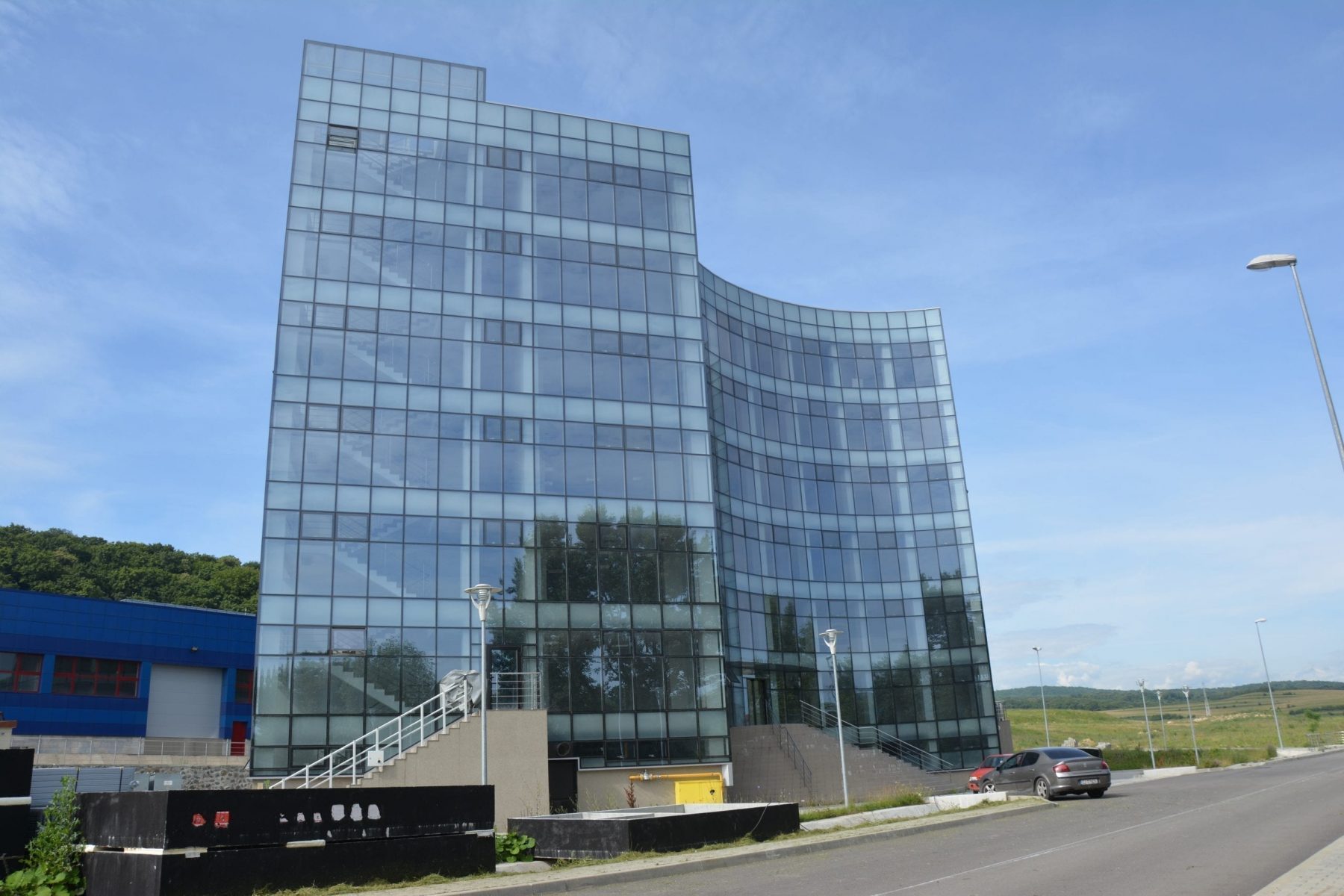
SC TETAROM S.A., one of the most successful project to support private investors from Romania, had an accelerated growth in the last years. Started from 2001, the date of opening, the company is managing almost 200 hectares of land, office buildings, production and logistic areas, achieving a well-deserved reputation in the national and international business sector.
Tetarom is now integrating three full operational industrial parks, which generates commercial and fiscal revenues. With a 100% degree of occupancy, Tetarom parks are hosting more than 110 companies, with an approximate total of 12,300 employee.
Based of increasing requests of investors to be located in such parks, Cluj County Council begin the development of two new similar structures: Tetarom IV and Tetapolis.
First of these two, will be located in Turda-Campia Turzii area, with a surface of 115 hectares, situated in the vicinity of A3 highway Brasov-Targu Mures- Cluj-Oradea.
Tetapolis Industrial park will be located in the vicinity of Tetarom I, over an area of 8.6 hectares, and here there will be built office buildings equipped with laboratories, incubation and acceleration spaces, and other types of spaces dedicated to tenants (kindergarden, medical center, restaurants, etc).
List of Industrial parks in Cluj County
1. P.I. Tetarom I – operational, public shareholders
2. P.I. Tetarom II – operational, public shareholders
3. P.I. Tetarom III – operational, public shareholders
4. P.I. Tetarom IV – work in progress, public shareholders
5. Parc Științific și Tehnologic TETAPOLIS – work in progress, public shareholders
6. P.I. Câmpia Turzii – operational, public shareholders
7. P.I. Cluj Innovation Park – work in progress, public shareholders
8. P.I. Turda 1 – operational, private shareholders
9. P.I. Turda 2 – operational, private shareholders
10. P.I. Dej – MG Tec – operational, private shareholders
11. P.I. Dej – Arc Parc – operational, private shareholders
12. P.I. Poieni – work in progress, private shareholders
TETAPOLIS, an innovative project
The Cluj County Council, as a major shareholder of SC TETAROM SA, has constantly been involved in the development of business innovations, facilitating new investments in the high technology industry with high added value and generating growth, benefits and welfare for the entire community of Cluj County and beyond.
Therefore, one of the innovative projects promoted extensively by the county administrative council was the achievement of the TETAPOLIS Science and Technology Park, a project that benefited from a highly solid partnership between the local public authorities and the academic environment and is currently under implementation.
The necessity of this scientific park was created as a result of the desire to capitalize on the highly qualified human resources existing in Cluj County.
Built on an area of over 8.6 hectares, the Tetapolis project will include research offices and laboratories, complete incubation structures, conference rooms, exhibition spaces, parking and construction dedicated to sports and relaxation activities, aiming to become a true „hotspot” for the entire North-West Region of Romania.
From the very beginning, Tetapolis awakened the interest of foreign partners, including prestigious academic institutions such as Missouri University and Colombia University (USA), who were interested in the development of industrial research and development centres in Cluj area.
Among the important investments made so far at Tetapolis, we mention the launch of the first digital incubator in Romania, carried out under a project with a European funds of 60 million euros and with dozens of start-ups in the field of creative technologies and entrepreneurship.
Also, given the existence of a shortage of 1.5 million cyber security specialists worldwide, about two years ago, the Cluj County Council facilitated the launch of the „Cyber Security Training Academy” in Tetapolis Science and Technology Park.
As the world’s first specialized training program, it aims to interconnect the current training system by combining theoretical courses with an online cyber-defensive capability testing platform.
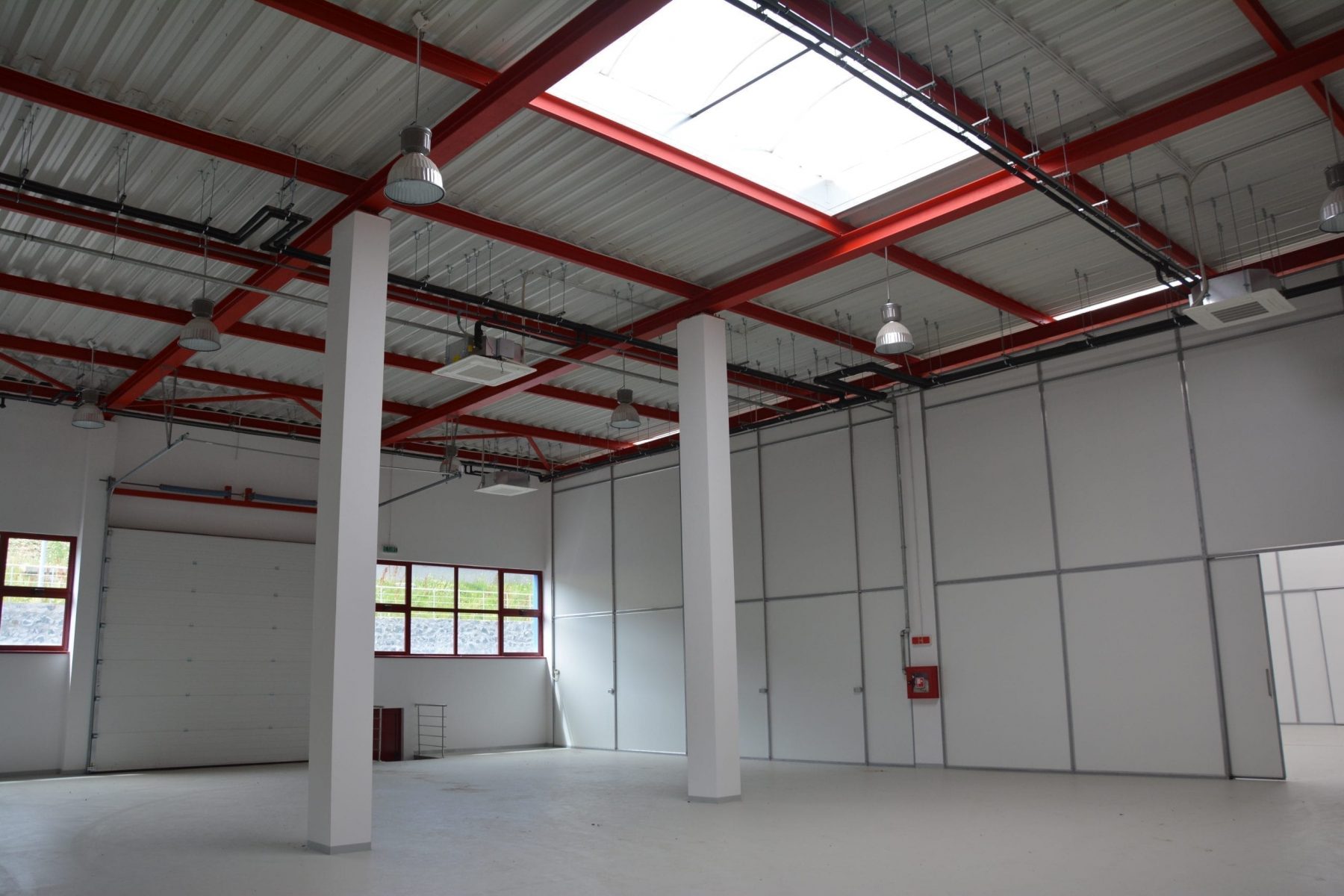
A strategic approach, scientifically designed and planned
Cluj County, the first county in Romania where the Territorial Landscaping Plan will be developed with the World Bank technical assistance.
The Cluj County Council approved in April 2019 the conclusion of a Technical Assistance Agreement with the World Bank for the elaboration of the Cluj Territory Landscaping Plan (PATJ). The elaboration of this strategic document is necessary because the new plan is intended to reflect the most current development directions and priorities of the county.
Based on this agreement, the World Bank – The International Bank for Reconstruction and Development will provide the necessary technical support for document elaboration through 10 substantiation studies, in areas relevant to territorial development.
At the same time it will provide assistance to Cluj County for the elaboration of a Territorial Development Strategy of the County, taking into account the territorial development directions and priorities of the county, based on the prospective diagnosis.
Last but not least, the Bank will provide assistance to the County Council for the development of a detailed action plan for the implementation of the measures proposed in the PATJ. This will include, among other things, the specification of the responsibilities and sources of financing public policies, public investment programs and projects necessary for sustainable and competitive territorial development. It will also include a plan for consultation and involvement of relevant stakeholders and the community in the planning process, proposals for measures to counteract potential physical or economic dysfunctions, depending on the findings of the diagnosis as well as the allocation of responsibilities and sources of funding for public policies, programs and public investments necessary for the sustainable and competitive development of the county’s territory.
Cluj County, Smart territory
The County Council of Cluj has realized that the administration of the third millennium is an electronic, online, simplified, integrated service that saves time, money and energy for the beneficiaries.
Not only has he understood but is already acting accordingly.
Urban planning documentation – at a „click” distance. Simple and effective.
Cluj County becomes a „Smart Territory”.
One of the main objectives of the „Smart Territory” project is to reduce to a maximum of 60 days the term in which a building permit is obtained, well below the 169 days that is the average term in the other EU countries.
This goal will be achieved by building a complex territorial atlas and implementing one-stop-shop and archiving IT solutions. The Cluj County Council is the only administrative-territorial unit of its kind in the country with such a program under implementation. Practically, the time lost for paying issuance fees and obtaining documents from multiple institutions, supplementary / subjective additions to files, endless queues at the counter, „attention”, all disappear.
The overall objectives of the project are to increase the quality of services provided to Cluj citizens, to improve decision-making and strategic planning at the county level by introducing an integrated territorial planning system and facilitating access to online services for Cluj citizens by simplifying administrative procedures from a back- office.
The project „County Cluj – SMART TERRITORY” is financed from the European Social Fund under the Operational Program Administrative Capacity 2014-2020, Priority Axis 2 Public Administration and Accessible and Transparent Judicial System, Specific Objective 2.1.
The implementation deadlines assumed by the Cluj County Council are: the end of 2019 for the implementation of the Archives and the One Stop Shop, respectively 2020 for the Territorial Atlas.
The total value of the project is of 3,901,772.00 lei, out of which 3,316,506.20 lei is a grant from the European Social Fund (85%), 507,230.36 lei is a grant from the national budget (13%) and 78,035.44 lei is eligible co-financing from the Cluj County Council budget (2%).
The three major components:
1. Atlas Territorial application developed and implemented at UAT County Cluj County
Territorial Atlas, a computer application that brings together, in a single platform, sets and databases of various institutions, spatially transposed, related to landscaping, urbanization, housing, economic development, to substantiate investment decisions, respectively to the strategic planning of the county. The impact of this application at the citizen level stems from the fact that the best decisions can be implemented based on real data, in order to increase the quality of life in the county. The concept is not a new one, but it is not implemented at the level of public institutions, which gives the project an innovative character.
Currently, the query is made on demand without permanent access to up-to-date information and without real support in the implementation of the spatially-integrated, integrated database.
The Territorial Atlas application involves, through an interactive system, the analysis of territorial data and quantifications of the territorial impact of public programs in the area of spatial planning, urban planning, housing and regional development, using for this purpose a geographical information system and databases comprising information and statistical data required to characterize a territory. The information system will include cartographic representations to track the evolution over time and space of a large number of indicators in the areas of activity relevant to territorial development from public entities such as the National Agency for Cadastre and Real Estate Advertising (e-terra), The National Statistics Office (settlement files), the Trade Registry, the People Registration Offices, the Territorial Labour Inspectorates, the County School Inspectorate, the mayoralties, etc.
Thus, the senior management at UAT Cluj County will be able to access and interrogate this application in order to obtain updated data in real time in order to be able to substantiate the decisions generated by the accomplishment of the tasks.
2. Application One-stop shop for citizens developed and implemented at UAT Cluj County
In the process of obtaining permits for building permits, for example, each opinion involves the citizen visit to each competent institution. The solution for eliminating this inconvenience would be to establish a single point of submission and removal of documents in the form of a one-stop-shop to ensure the reception and coordination of the obtaining of opinions from the competent institutions. In this way, the citizen could present all the necessary documents for the permitting process (ante and post authorization) in a single visit to the county council to obtain all the necessary approvals to obtain the building permit. In order to ensure the efficiency of the action, which does not involve the citizen’s movement in order to obtain the necessary opinions and documents, it is proposed to create an electronic platform that will ensure the uploading and on-line transmission of all the necessary documents in the process, reducing the time needed to obtain the approvals. Moreover, such a platform would not only speed up the process but also increase transparency, allowing citizens to continuously monitor the status of their applications.
3. Digitized archive at the level of Cluj County Council
The electronic document management solution within the institution, its scanning for archiving and the retro-digitization of the archive are necessary in the context of the extensive and complex activity of the Cluj County Council, which doubles its annual files with which it operates. The territory is crowded and expanded and its management by the institution involves consulting a lot of archived information or current information but not in electronic format.
The innovation of the project lies in the effective implementation of these IT solutions, which, although there are concepts in the country, are not implemented in practice at national or county level. The notion of SMART CITY has become, in recent years, the instrument for measuring the development of municipalities and cities, both in terms of computerization and providing facilities to their inhabitants. Taking into account that this concept cannot be applied to counties wishing to offer similar services to all citizens of the county, the proposed project comes to develop the notion of SMART TERRITORY, ie county – smart territory.
Cluj Arena – the emblematic stadium
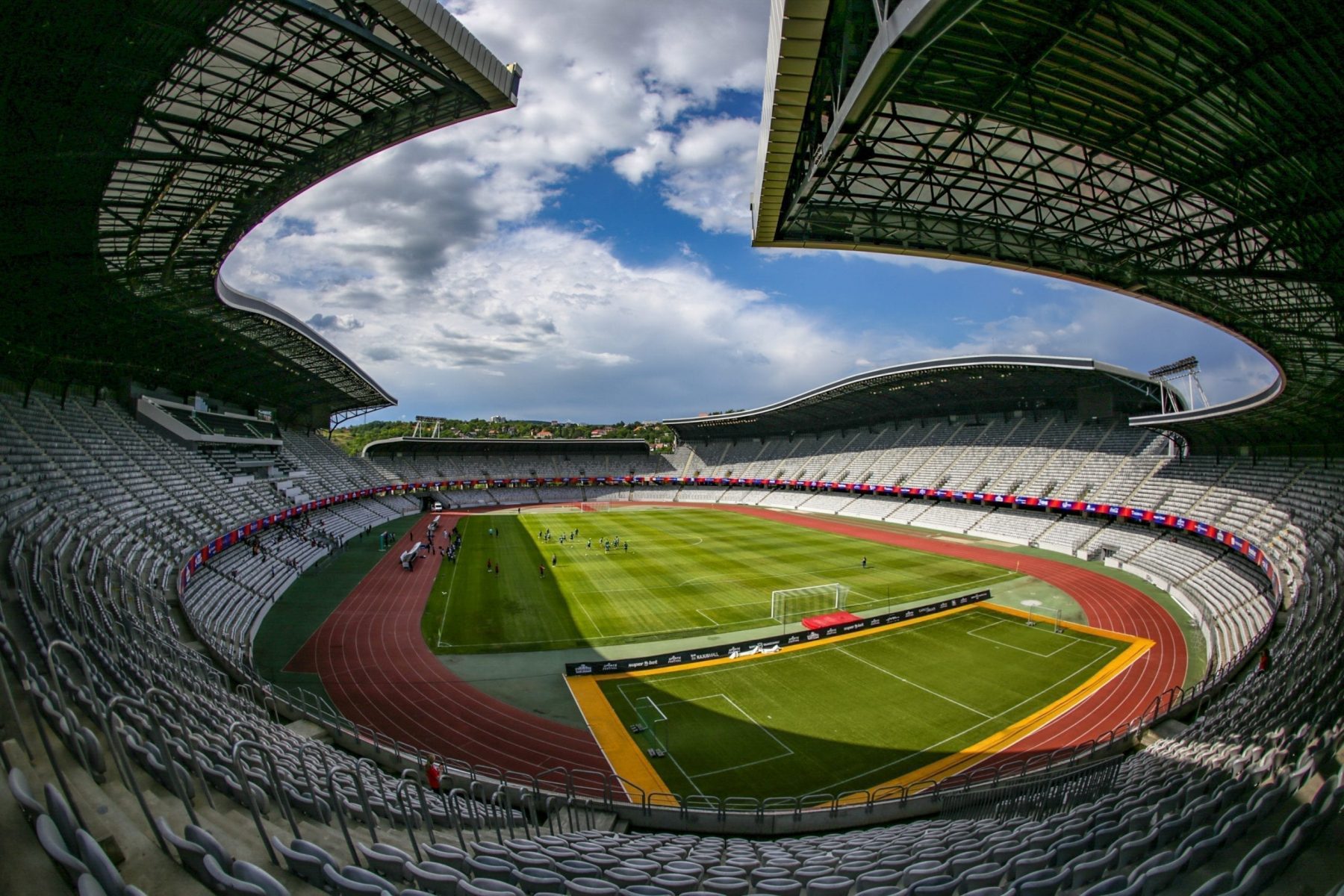
One of the successful projects implemented by the Cluj County Council, which irrevocably put Cluj County on the world map, is undoubtedly Cluj Arena Stadium, built within the central district of Cluj-Napoca.
Built according to the most demanding field standards and providing more than 30,000 seats, Cluj Arena was inaugurated in 2011, after carrying out an investment finalized in less than 2 years and with incomparably lower costs compared to other stadiums of similar sizes and facilities.
Designed as a multifunctional site, beginning with its inauguration till present, the UEFA Elite Cluj Arena has continuously proven its usefulness and importance for the community, hosting a series of truly memorable events, that can be mentioned here as an example:
– sports competitions of all types and levels: games played Cluj football teams, as well as other Romanian teams, during national or international competitions; football games played by the national team against Spain, Montenegro, Denmark, Chile; international athletics competitions, marathon and half marathon, rugby games, etc.
– music concerts performed by renowned international artists, such as Scorpions, Smokie, Roxette, Deep Purple, UB40, Andrea Boccelli, Depeche Mode;
– major festivals gathering a large audience: Sports Festival, UNTOLD, etc.
Annually, about 150 events are taking place on the premises of the stadium, attracting over 500,000 people, attendees and viewers alike. It should be mentioned the fact that one of the essential components of the specific functionality policy is renting the existing spaces inside the stadium for about 50 economic agents and sports clubs.
Taking into consideration the further development of the stadium and contributing to its even greater appreciation, Cluj County Council has recently acquired an automatic system in order to accelerate the process of lawn photosynthesis. The equipment, worth 1,649,900 lei, is a highly performing one – among the most advanced of its kind on the market – and it can operate even during the cold season, when the restoration of the game surface is more difficult to undertake, on account of the harsh atmospheric conditions and short lasting of natural light. Its role is to speed up the photosynthesis process up to three times compared to the one naturally occurring. Currently, similar installations can be found within the most fitted stadiums in Europe, such as the ones found in Barcelona, Madrid, London, Paris or Munich.
Considering also that playing surface has not been changed for more than 7 years, during which it has hosted over 1,000 sports events, Cluj County Council recently decided to replace the current lawn with a highly modern one – hybrid type, made of natural grass in which synthetic fibres are injected through, by using a special technology. Following the example of Europe’s famous stadiums, such as the ones from Barcelona or Milan, Cluj Arena will benefit this year of a highly resistant and improved lawn in terms of aspect and features.
Cluj, the county of memorable festivals and events!
An important part of the international fame that Cluj is currently enjoying at the present, as well as the number of tourists who decided to visit the county from the heart of Transylvania, are due to the fairs, festivals and truly memorable events of all kinds and tastes that have found a favorable setting to grow and develop here, already standing as genuine brands and attraction points.
Among these, we mention:
Transylvania International Film Festival (31rst of May – 9th of June 2019)
Sports Festival, Cluj Arena Stadium (13th – 16th of June 2019)
Jazz in the Park Festival (4th – 7th of July)
Mox / Music Outdoor Experience Festival, Drăganului Valley (11th – 14th of July 2019)
Electric Castle Festival, Banffy Castle from Bonțida (17th – 21rst of July)
Untold Festival (1rst – 4th of August)
Smida Jazz Festival, Beliș (15th – 17th of August)
Hungarian Cultural Days of Cluj-Napoca (18th – 25th of August)
Wonder Puck Puppet Street Festival (13th – 15th of September 2019)
Cluj City Days (27th – 30th of September 2019)
Cluj Musical Fall Festival, 53rd Edition (15th – 25th of October 2019)
Puck International Festival of Puppet and Marionette Theatres (14th – 18th of October 2019)
AgroTransilvania Cluster, the most active and relevant cluster
One visionary approach of the County Council, which stimulated the development of certain sectors, has been supporting clusters in bringing together all relevant actors from a specific field.
Set up in 2013 at the initiative of the Cluj County Council, AgroTransilvania Cluster recently received the highest award management certification at European level – Label of excellence in organizational management cluster (quality label) GOLD – Gold Label of the European Cluster Excellence Initiative.
At the end of an assessment carried out by independent experts, the certification has been granted for the entire conducted activity, long-term positive impact on the agrifood sector in the North-Western region of Romania, as well as for the organization and development of the whole activity.
As founding member and major promoter of AgroTransilvania Cluster, Cluj County Council constantly supports research, innovation, technology transfer and sustainable development of Transylvania agroindustrial sector, in order to increase both the competitiveness of this entity, as well as each of its members, on national and international markets.
At first, in 2013, the Association ”Cluster Agro-Food Ind Napoca” (AgroTransilvania Cluster) brought together 20 founding members, reaching by 2019 no less than 83 members – producers, processors, related services providers, universities, research institutes, financial institutions, public administration.
At the present time, AgroTransilvania Cluster is running six non-reimbursable funded projects, of which 3 are national (POC, POCU and POCA fundings) and 3 international (Horizon 2020 and COSME grants). In addition, there are many other projects that find themselves in various stages of processing or evaluation.
Cluj County Council, promoter of equal opportunities
Puck Puppet Theatreʹs performances will reach all the communes of Cluj County.
At the beginning of April 2019, Cluj County Council and Puck Puppet Theatre, a cultural institution subordinated to the county administrative institution, launched an extensive project entitled „Access to culture for children from rural environment”. This aims at putting on stage, in all the communes of Cluj County, theatre plays loved by the little ones, and not only.
Alin Tişe, President of Cluj County Council: It is, first of all, a matter of fairness. Access to culture should not be reserved only for children living in the urban area, children from villages are also entitled to these captivating performances. This was, moreover, the reason why we gave financially support to several subordinated cultural institutions for purchasing modern minibuses, precisely in order to reach easily all the corners of the county.”
Thus, stories such as „The Clever Little tailor”, „Red Riding Hood and the Hungry Wolf” or „Journey into the Story World” are just a few of the performances with which the theatre from Cluj delights their audience in the tour began on April 1, 2019 and which takes place in the rural area of the entire county.
Thanks to the funding provided by Cluj County Council, Tudor Jarda Folk Art School from Cluj has the largest and most modern headquarters in Romania.
In November 2017, Cluj County Council officially and festively marked the completion of an ample process of rehabilitation and modernization, respectively the inauguration of the building that hosts Tudor Jarda Folk Arts School in Cluj, at the finalisation of works.
̎It’s a day of celebration for culture in Cluj. After a decade of construction and extremely substantial investments of more than two million euros from the County Council budget, this building, which once functioned as a simple sugar factory, has become a state-of-the-art modern facility capable of hosting the present „cultural factory”, declared the president of Cluj County Council, Mr. Alin Tişe, at the moment of inauguration.
The works, which covered both the building and the adjoining courtyards, consisted in the restoration and consolidation of the basement, the restoration of the ground and floor strength structure, replacement of carpentry, replacement of wooden floors with reinforced concrete floors over the floor, the attic of the building by adapting to the specific needs of the cultural institution. Also the electrical, heating, sanitary installations were completely restored and a high-performance air conditioning system, including a heating plant, was installed.
President of Cluj County Council, Mr. Alin Tişe: „It is a great pleasure for me to offer a prestigious cultural institution an ultramodern and functional building. With a useful area of 4,300 square meters, it is the largest headquarters of a School of Arts in the country. Beyond the extremely generous spaces and the modernly designed sections, the School also has its own modern studio of recordings, unique in Transylvania.”
The extensive works of rehabilitation and modernization of the headquarters of the School of Arts Cluj were necessary hence it was built in 1829 and therefore has a considerable length of time to be used as a headquarters of a prestigious cultural institution, complex construction and sectioning works had to be performed.
Prior to becoming the headquarters of the Arts School, the building on Fabricii de Zahar Street no. 51 from Cluj-Napoca had different destinations, being used over time as a sugar factory, barley factory, barracks, settlement of the Imperial Institute of Correction and annex of „Samus” Special Technology High School. Considering the considerable age of the building, although it is not classified as a historical monument, it has been treated taking into account its historical value, using a number of special materials as close as possible to the original ones.
Also in order to ensure the optimal development of the activity of this prestigious cultural institution of Cluj, Cluj County Council acquired in December 2018, for the Arts School, two new extremely necessary features: a concert piano and a minibus with the capacity of 21 seats.
As far as the piano is concerned, it was inaugurated on January 15th 2019, during an exceptional concert dedicated to the National Culture Day. The piano carries the famous „W. Hoffmann by Bechstein” mark and is a classic, for concert, ultramodern through the accuracy of the sound it emits.
This highly appreciated musical instrument comes to fulfil the artistic and educational activity of the School of Arts, contributing to the considerable improvement of the quality of performances supported by the students of this institution.
Also for the Arts School, Cluj County Council acquired a new minibus with 21 seats at the end of 2018. Therefore, the institution of education, art and culture has the possibility to move much more easily to the various organized events in the county, in the country and abroad, all the more so as the support of artistic performances and the realization of exchanges experience with similar cultural institutions are core activities in the educational process.
Authentic Cluj has a future

More than 5,500 school students from Cluj have discovered the beauty of folk traditions, customs and folk music, within the cultural-educational project „Dowry of Cluj Traditions ̎ initiated by the Cluj County Centre for the Preservation and Promotion of Traditional Culture, a cultural institution subordinated to Cluj County Council.
Launched in 2017 with the declared purpose of transmitting the customs, customs and traditions of Cluj to the younger generation the project has reached so far 30 schools in the county. It aims to promote the traditional culture of Cluj County among pupils in the rural area, in all the communes in the county, but also in the urban area. It also wants to awaken the love and interest for the customs and traditions of Cluj and the development of the competitive spirit, through the traditional culture contest „United by Traditions”.
At the same time, there are proposed for visualization sequences from the cultural-educational projects, aimed at the participation of the young generation with traditional moments.
The meetings took place in the festive venues of schools, or in Cultural Centres, according to the number of students. The youngsters have been distributed leaflets with adequate content, screenings of ethnographic films and moments of vocal musical folklore (exemplifying doina, ballad and song itself).
Also the members of the project presented folk costumes from different folkloric areas of Cluj County, and at the end some of the students participated in competitions on traditional culture themes.
The project wishes, where possible, to create a museum corner within each school, consisting of popular objects collected by students, teachers and parents. The project also takes the form of a dialogue on the same scene. Students are challenged to become actors and present their colleagues folk songs, games, theatre and traditions from their area of origin.
(From the special edition of TB 86 – „ENJOY TRANSYLVANIA!” – May/June 2019)


